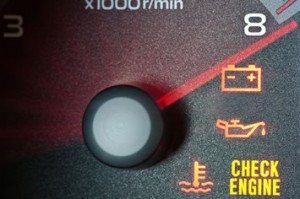 Here at Wheels-Alive we have long appreciated the crucial importance of maintaining engine oil at the correct level (as well as carrying out regular and frequent oil and filter changes). Indeed, often we have witnessed the sad and expensive consequences of not maintaining oil at the correct level.
Here at Wheels-Alive we have long appreciated the crucial importance of maintaining engine oil at the correct level (as well as carrying out regular and frequent oil and filter changes). Indeed, often we have witnessed the sad and expensive consequences of not maintaining oil at the correct level.
The engine oil serves to keep apart metal components working in very close proximity, minimising friction and helping to keep the components cool. If the oil level drops too far, the film of lubricant separating the metal components will disappear, friction will increase and temperatures will rise dramatically . Ultimately the engine will seize up as the components lock/weld themselves together! Replacement engines, or rebuilding your own unit if this is possible, can typically cost thousands of pounds…
According to research carried out on behalf of Mobil (for the last four decades, manufacturers of Mobil 1 advanced fully synthetic engine oil), approximately one in five U.K. motorists are only prompted to check the oil level in their car’s engine in response to an instrument panel warning.
Frankly, this can be a costly mistake! However, many drivers will not appreciate (probably because they have never been told) that by the time a dash ‘oil’ light illuminates, the oil pressure could already be dangerously low and serious internal damage could have been done to the engine.
Furthermore, over half of the Mobil survey respondents said that they never checked their car’s engine oil themselves, but relied on others (for example, forecourt attendants, family members, friends, etc.).
These days cars typically run with small capacity oil sumps (reservoirs), and although engineering tolerances in modern engines are very close, so in most cases oil consumption is low, there is little spare capacity in the event of the oil level dropping. So an unexpected oil leak, or a long, fast journey (for example) started with the lubricant level already low, could put the motor at serious risk.
We are consistently and frequently told that modern engines require less attention than their predecessors. While in some respects this is true, if you prefer not to spend money unnecessarily, it is still wise to check the oil level regularly and frequently (ideally at least once at week), and to be especially diligent if taking the car on a long drive, such as a holiday trip. It also pays to carry some spare oil on board in such circumstances, so that if the lubricant level drops, you can top up using the correct specification oil. This is vitally important too.
If in doubt about the type/specification/viscosity of oil to use in your engine, consult your car’s handbook, the service department of a local dealership, or automotive oil suppliers (many of their websites are very informative).